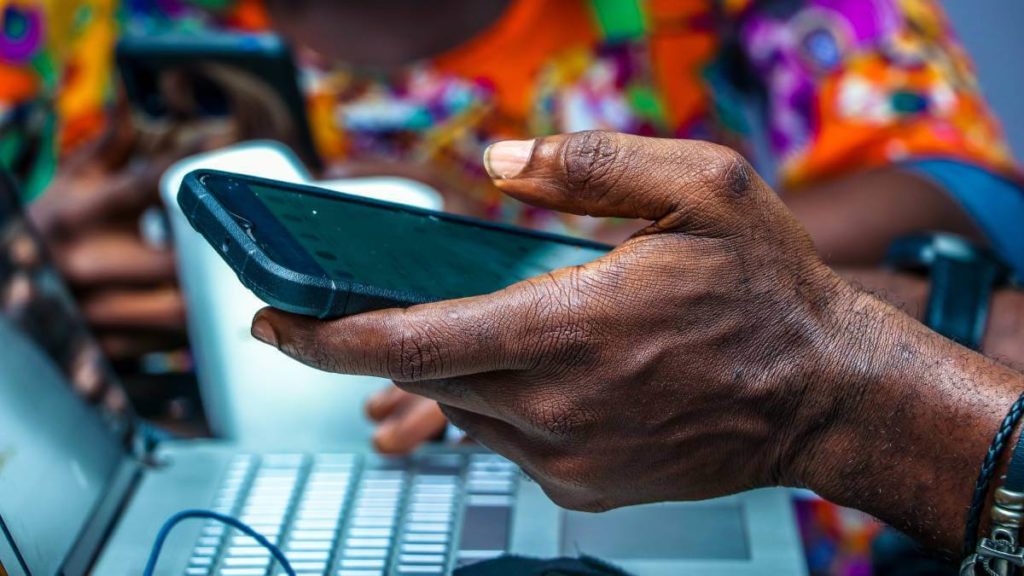As the tech ecosystem within Africa continues to grow, Ethereum certainly plays a role in powering groundbreaking innovation. At times, when the Ethereum price might reflect its continuous utility, this is a blockchain platform considered a critical enabler for most financial inclusion, decentralized finance, or even tokenization across the African continent.
As one of the major blockchain networks adopted into critical mass across the world, including developing economies in Africa, the infrastructure on Ethereum is helping economies where underbanked populations have hindered business in the past and access to essential capital for financing has slowed commercial growth. The net effect nurtures economic advancement via technological leapfrog.
Ethereum’s Growing Influence in African Fintech
The fintech sector has been a cornerstone of Africa’s tech ecosystem, with more than $1.3 billion in funding in 2023 alone, according to Partech Africa. Ethereum’s blockchain technology has emerged as a key enabler for fintech startups, offering solutions for payments, remittances and digital wallets that target the continent’s unbanked and underbanked populations.
Applications such as the Xend Finance platform are leveraging Ethereum to provide decentralized savings and collaborative financial services. The applications solve some of the major problems of financial inclusion by affording the users the possibility of conducting transactions without the help of banks, which in most rural areas are hard to access. In addition, smart contracts on Ethereum enhance security and transparency qualities important to build trust in markets still skeptical of financial institutions.
It has already prepared cross-border Ethereum-enabled payments on its side to upstage this emerging continent, where in 2022, remittances sent reached over $50 billion. The Ethereum-powered systems can achieve reduced transaction fees and processing time compared to that available from traditional service providers offering pricey services.
Decentralized Finance: Empowering the Underbanked
Probably one of Ethereum’s most metamorphosing contributions to the African continent is providing the backbone on which DeFi applications are built. Users, through DeFi, can utilize financial services like lending, borrowing and earning their money with no interference from centralized forces. In most countries threatened by inflationary pressures and tumbling currencies, it has been important for many Africans to hold onto their money.
Platforms such as Ejara in Cameroon and Aave on Ethereum create access to stablecoins, which are cryptocurrencies pegged to more stable assets, such as the US dollar. Where local currencies get frequently devalued-for instance, Zimbabwe and Nigeria-stablecoins have become the more viable stores of value. DeFi applications also reduce friction to microfinance, letting overcollateralized users borrow small amounts at a much lower cost relative to traditional microlenders.fin
Perhaps more importantly, because Ethereum-based DeFi solutions avoid many red tape issues involved in banking as well as a lot of fee collections, they prove to be even more attractive for small businesses and entrepreneurs. For example, traders could get loans that do not come with heavy documentation, thereby allowing avenues for growth in informal markets.
Tokenization and Crowdfunding Opportunities
The smart contract functionality of Ethereum opened a new avenue for African entrepreneurs in tokenization and crowdfunding for new fundraising models. With the Ethereum ERC-20 standard, startups can raise capital in a very transparent and efficient manner by way of issuing tokens.
A good example, for instance, is the increased usage of Initial Coin Offerings and the Security Token Offerings. These methods democratize access to venture capital, giving people an opportunity to effectively invest in these projects. Part of what has been of even more paramount essence has to deal with tech hubs, majorly like in Lagos, Nairobi City and Cape Town. Majorly, very few startups end up getting traditional venture capital in access or the sometimes stringent requirements.
Moreover, tokenization has also gone past startups to include real estate and agriculture. Companies are taking advantage of Ethereum’s blockchain to tokenize everything from property to farm produce, thus allowing for partial ownership and creating investment avenues that were previously out of the reach of the average man.
Challenges in Adoption: Scalability and Regulation
Although quite promising, the adoption of Ethereum in Africa does face challenges. Scalability is a big concern as the network has faced congestion and highly paid transaction fees during the peaks. As the Ethereum upgrade to Proof of Stake known as Ethereum 2.0 has somehow scaled the energy efficiency through proof, this does not yet fully impact efficiency.
Another important barrier to overcome is regulation. Most governments in Africa have been wary of blockchain and cryptocurrency adoption because of claims of fraud and financial instability. For example, the Central Bank of Nigeria banned cryptocurrency transactions through banks back in 2021, although it later launched the eNaira, a digital currency, reflecting a nuanced stance on the technology.
In relation and similarly, so, South Africa sails into clearer regulation as, this year, it declared crypto assets financial products via its own FSCA. Such is proof that this attests to progress, at best, if one desires an agreement on some basic policy with most other fellow members across this huge continent towards more mainstream Ethereum.
Ethereum and the Future of African Tech
The diversity in Ethereum goes beyond its use in finance to opening an entire world of innovation in non-financial fields. A good example pertains to the NFT class of applications, most especially those that allow African artists and creatives an avenue to sell their work in a global market like OpenSea, thus bypassing traditional gatekeepers. From digital art to music, NFTs open innovative streams of revenue and exposure for creators across the globe.
Examples include the uses of Ethereum for bringing transparency into supply chains within agriculture and healthcare startups seeking to store patient data securely and help in easy access to the records. Ethereum allows tracking of fruits and vegetables from farm to consumer to assure their origin and authenticity, thereby considerably reducing cases of fraud. Likewise, some health-related startups leverage Ethereum for more secure patient data and smoother sharing processes to help bridge a gap in various medical systems’ inefficiency.
Ethereum also adds to the increasingly expanding gaming market in Africa by developing play-to-earn game models that ensure that the gamer indeed accrues rewards in other virtual forms of cryptocurrencies, which may be converted into real-time monetary value. Such examples are even more interesting to countries where traditional gaming markets are not as widely available.
Conclusion
Ethereum, for instance, affects Africa’s tech ecosystem at every level-from its DeFi applications, driving financial inclusion to creative fundraising, powering NFTs, etc. The technology around blockchain reshapes industries across the continent. Of course, there is still some way to go as far as scalability and regulation are concerned. However, ongoing developments on the network of Ethereum itself and a gradual evolution of the regulatory frameworks of different African jurisdictions bode well for the future.














